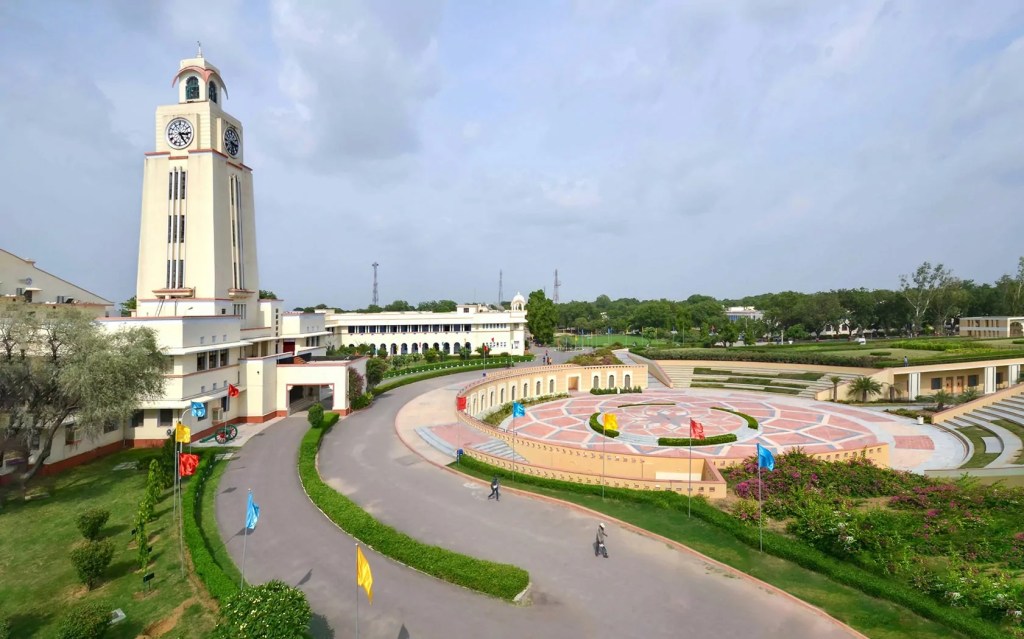In the recently-released NIRF rankings, BITS Pilani was one of the strongest performers – compared to 2024, its Overall NIRF rank in 2025 jumped from 23 to 16, it entered into top-10 universities for the first time (rank 7), it was the second-best in pharmacy, and its rank among engineering colleges jumped from 20 to 11 (and it was India’s best private engineering college).
Prof V Ramgopal Rao, group vice-chancellor of BITS Pilani, told FE that these results are a testament to the institute’s sustained focus on academic and research excellence. “Our performance marks our best-ever showing across all key categories,” he said. “This includes a historic entry into the top-10 universities, and in pharmacy we are the second-best in the country. In the NIRF Research category, we moved up eight places from 26th to 18th.”
The NIRF, short for the National Institutional Ranking Framework, ranks educational institutes in the following categories: Overall, Universities, Colleges, Research Institutions, Engineering, Management, Pharmacy, Medical, Dental, Law, Architecture & Planning, Agriculture & Allied Sectors, Innovation, Open University, Skill University, State Public University, and Sustainable Development Goals.
What fueled the rise?
Prof Rao said that BITS Pilani demonstrated significant improvements in faculty-related metrics. “In the Overall category, our faculty-student ratio (FSR) improved from 18.96 to 22.82, and the proportion of faculty with PhDs (FQE, short for faculty with PhD and experience) rose from 14.77 to 16.75. These gains were reflected in the University and Engineering rankings as well,” he said.
He added that research productivity was a key driver. Publications (PU) increased from 19.25 to 23.89, and the quality of publications (QP) improved from 21.06 to 25.11 in the Overall category. The institute also saw a notable increase in intellectual property rights (IPR) or patents, rising from 5 to 8. The number of PhD graduates (GPHD) was higher across all categories, with a rise from 15.19 to 17.74 in the Overall category. “This reflects our strengthening doctoral education programmes,” Prof Rao said.
Inclusivity and female students
The institute’s commitment to inclusivity was another factor that helped it rise up the ranks. Women diversity (WD) improved from 17.38 to 20.09 in the Overall category, and saw similar gains across Engineering and Pharmacy. Prof Rao said that a major factor in the University category’s jump was the massive surge in perception and accreditation scores, from 19.68 to 49.19, primarily due to the NAAC A++ accreditation rating.
Areas for improvement
While this year’s rankings seem to be a major victory for BITS Pilani, a closer look at the NIRF rankings report reveals areas needing attention. For example, ‘perception’ scores for the Overall, Engineering, Pharmacy, and Research categories declined slightly, with only the University category seeing an improvement due to accreditation. Additionally, there were small dips in the score for funded projects (FPPP, or Footprint of Projects, Professional Practice, and Executive Development Programmes) in the Overall, University, and Research categories, though the Engineering programme saw an increase in this area.
But Prof Rao said that the NIRF 2025 report paints a picture of a university on a strong upward trajectory, driven by enhanced academic and research metrics, and a commitment to quality education. “We are proud of this performance, but we view it as a milestone on a longer journey,” he said. “We are committed to building on this momentum and achieving even greater heights in the years to come.”
